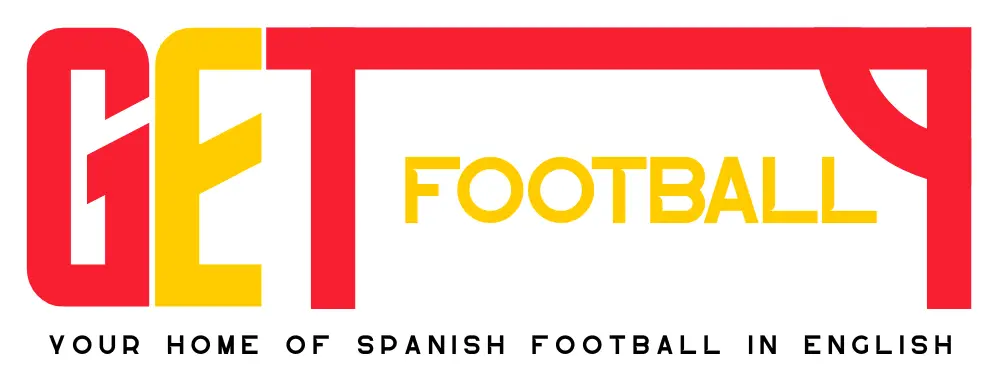It’s October 22nd, 2019, Real Madrid are in Turkey to face Galatasaray in the group stages of the Champions League. If Zinedine Zidane doesn’t bring all three points back to the Spanish capital it could be all over. Zidane is in the firing line. His Real Madrid side are conceding goals, possibly on their way out of the Champions League and critics say the Frenchman shouldn’t have returned to the Santiago Bernabeu for the second time as head coach.
Just three days earlier, newly-promoted RCD Mallorca, operating on a shoe-string budget, scored after seven minutes against their visitors Real Madrid. Lago Junior, one of six players in the Mallorca starting XI who had played with the islanders in Segunda B, Spain’s third tier, scored the all-important goal. Madrid looked clueless on the night, out of shape and ready to write off another league title after losing 1-0.
Zidane has since turned it around – he won his tenth title in 187 official games in January when Madrid defeated cross-city rivals Atletico Madrid in the newly revamped Spanish Super Cup, 4-1 on penalties in Jeddah, Saudi Arabia.
Madrid entered the 2019/20 campaign full of doubt after a horror show 2018/19 season and a very questionable summer transfer window. In September, it seemed like there was an inability to shake up an aging squad equipped for another year of stagnation. Club sources at the time were worried that Zidane could not repeat the success of his first spell as coach and may even quit again. Florentino Perez, club president since 2009, was said to have been considering a potential return for Jose Mourinho.
Through all this Zidane kept his cool. A class act on the pitch, he was calm in possession. Off the pitch, Zidane is softly-spoken, friendly and polite. Amid all the turmoil in September and October, Zidane stayed calm. There isn’t a minute at Real Madrid where you don’t come under scrutiny. Julen Lopetegui and Santiago Solari found out between Zidane’s first and second spells how Madrid is one of the most pressurised roles in football management, lasting just over four months each. Zidane kept his faith in his methods despite the criticism from fans and pundits around the Bernabeu. Some never rated the World Cup-winner as a coach, even if he won three Champions Leagues in two-and-a-half seasons.
Thibaut Courtois has stood up after a rocky start to life at Madrid; he has helped take some pressure off team-mates and Zidane. The Belgian giant has only conceded 16 of the 19 goals conceded in 27 La Liga games. Zidane praised the 27-year-old in January claiming: “He could quite feasibly break every existing Real Madrid goalkeeping record.”
A 95th-minute Courtois knockdown for Karim Benzema ensured Madrid left Valencia with a last-minute point in December. This assist was perhaps the turning point in Courtois’ season. He was substituted at half-time against Club Brugge in the Champions League in October after conceding two early goals. The early withdrawal was put down to stomach problems by boss Zidane and the former Atletico shot-stopper was forced off amidst boos.
Fan-favourite Keylor Navas left in the summer for PSG, the pressure was on Courtois and he struggled – now he’s on course to become the first Madrid goalkeeper to win Zamora trophy (the goalkeeper who has the lowest goals-to-games ratio) since Iker Casillas in 2008 – one which he won in both 2013 and 2014 for Atletico Madrid. Casillas shipped just 32 goals in 36 games that season.
Ahead of Courtois is this season’s regular left-back Ferland Mendy – Mendy starting ahead of long-serving Brazilian left-back Marcelo is a statement of intent – the defence’s primary function is now to defend. Zidane has been pleased with his side’s solid approach: “Defensively what we are doing we are doing very well, it is our strength.”
Last summer Zidane made big calls that went his way. Dani Ceballos was loaned to Arsenal by the disgust of many fans. A player believed to be the successor of Kroos and Modric was being loaned out when supposedly needed. The 1998 Ballon d’Or winner instead went with the unproven Uruguayan Fede Valverde; one of the coach’s finest decisions to date.
Valverde exploded onto the scene, a box-to-box midfielder who is now doing what Luka Modric can no longer do. Toni Kroos recently turned 30 and is playing some of the best football of his career. These are players Zidane trusts and they trust him – through this trust and belief the confidence has returned and Madrid are a force again, for the first time since the 2016/17 season.
Brazilian defensive midfielder Casemiro protects his back four and allows his midfield to do what they do best. Casemiro is the cog in Madrid’s machine – he links the play, along with Karim Benzema. Casemiro is the first name on Zidane’s teamsheet. The call up of 18-year-old Brazilian wonderkid Rodrygo Goes, ahead of more experienced options has paid off spectacularly. A Champions League hat-trick over Galatasaray in a 6-0 home win showed what he can do and how big of a future he could have.
Benzema’s strong relationship with Zidane off the field is reflected in his performances; the striker recently agreed to a contract extension until 2022, with a deserved wage increase that sees him earning among the top players at the club. There is a plan now, a consistent starting XI working as a cohesive unit and tactical flexibility away from home. Zidane’s in-game management is much more proactive than before. He’s able to switch between several systems over 90+ minutes; adapting from 4-5-1 to 4-3-3 to 4-1-4-1. The focal top and central figure is more often than not Karim Benzema.
The team’s consistency has been greatly influenced by new Head of Performance Gregory Dupont – the man recognised as being one of the key influences behind France’s World Cup success in 2018. Zidane approached Florentino Perez about hiring the French fitness guru to oversee Madrid’s physical performance operation. Eden Hazard worked alongside Dupont at Lille; a recognisable face that is working closely with the Belgian on his return from ankle surgery.
Zidane’s objective is winning La Liga but he is also aware that a nine-month-long season requires peak physical conditioning after witnessing his team’s sluggish campaign last season. Having been impressed with Dupont’s methods with Les Bleus, Zidane gave him a crucial role that is now paying off, leading to less injuries and more consistent results across the season.
Toni Kroos’ goal on 18 minutes in Galatasaray’s Turk Telecom Stadium in Istanbul on that October night ensured Madrid got their first win in the Champions League group stages after two failed attempts. A 3-0 defeat in Paris to Paris Saint-Germain and a 2-2 home draw against Club Brugge. That Kroos strike bought Zidane time; it has been reported that Madrid are happy to stand by their former No 5 for the foreseeable future.
Real Madrid won the Madrid derby, 1-0 on February 1 – Zidane’s fifth win over Diego Simeone and a first win over Atletico in the Santiago Bernabeu since 2012. Simeone lost two Champions League finals to Zidane but is hailed a hero at Atletico, mainly for bringing Los Rojiblancos to new heights never quite seen before at the club. Zidane, on the other hand, has been questioned, time and time again. Four defeats in the last seven games in all competitions before the outbreak of COVID-19 raised more questions from Zidane’s doubters. Perhaps it is the break the Frenchman and his squad needed.
Madrid’s 2-0 win in El Clasico on March 1 was Zidane’s 131st victory as head coach of Los Blancos, which brought him to within two wins of legendary Spain boss Vicente del Bosque (133) in second place, and three ahead of Jose Mourinho (128). Miguel Muñoz is first (357) in the all-time standings at Real Madrid.
Zidane only took his first senior managerial job in January 2016 and at 47 is already amongst the greatest coaches to have hugged the touchline at the Santiago Bernabeu. Who is going to tell him he was wrong to return?











